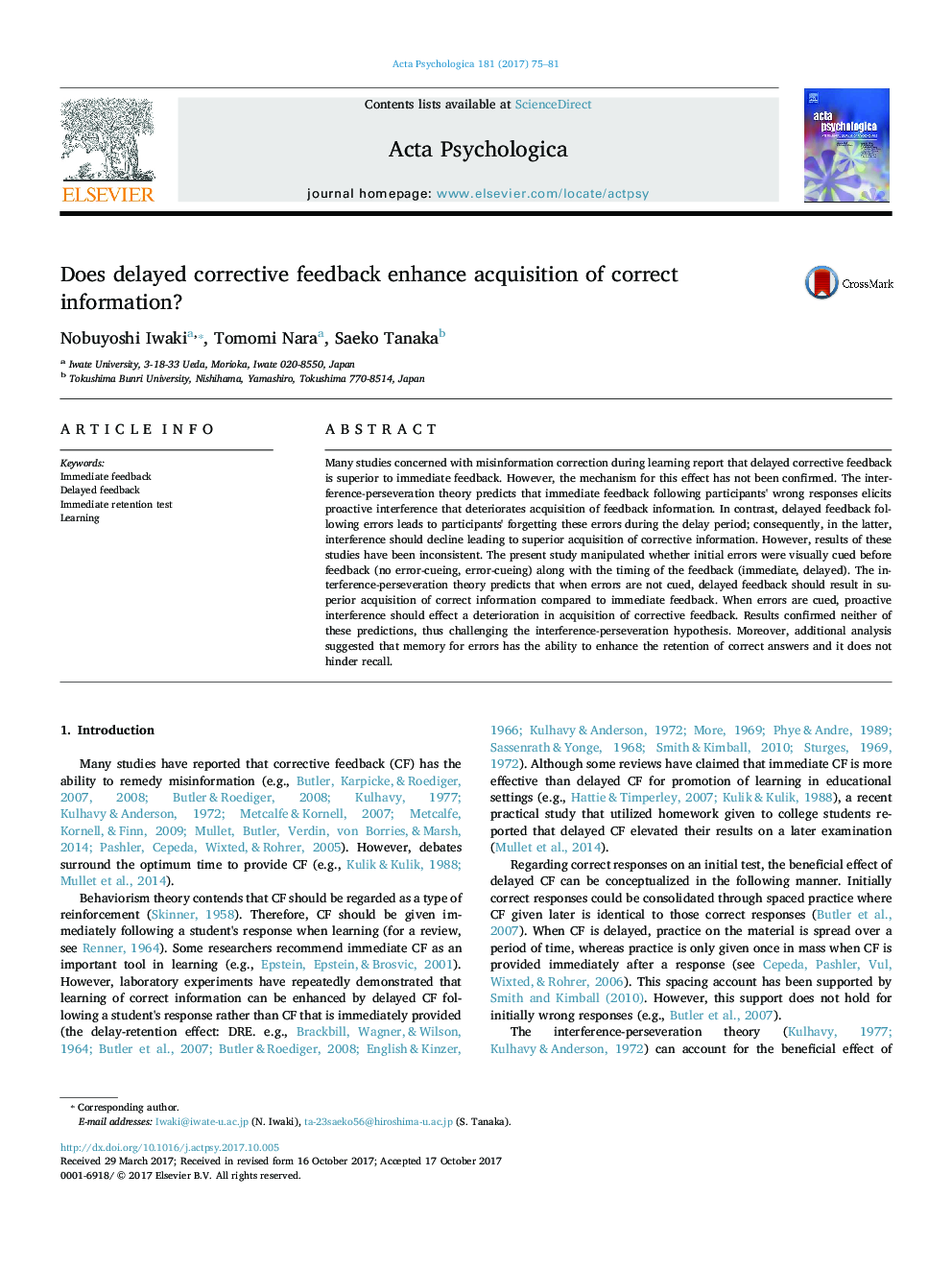| Article ID | Journal | Published Year | Pages | File Type |
|---|---|---|---|---|
| 7276927 | Acta Psychologica | 2017 | 7 Pages |
Abstract
Many studies concerned with misinformation correction during learning report that delayed corrective feedback is superior to immediate feedback. However, the mechanism for this effect has not been confirmed. The interference-perseveration theory predicts that immediate feedback following participants' wrong responses elicits proactive interference that deteriorates acquisition of feedback information. In contrast, delayed feedback following errors leads to participants' forgetting these errors during the delay period; consequently, in the latter, interference should decline leading to superior acquisition of corrective information. However, results of these studies have been inconsistent. The present study manipulated whether initial errors were visually cued before feedback (no error-cueing, error-cueing) along with the timing of the feedback (immediate, delayed). The interference-perseveration theory predicts that when errors are not cued, delayed feedback should result in superior acquisition of correct information compared to immediate feedback. When errors are cued, proactive interference should effect a deterioration in acquisition of corrective feedback. Results confirmed neither of these predictions, thus challenging the interference-perseveration hypothesis. Moreover, additional analysis suggested that memory for errors has the ability to enhance the retention of correct answers and it does not hinder recall.
Keywords
Related Topics
Life Sciences
Neuroscience
Cognitive Neuroscience
Authors
Nobuyoshi Iwaki, Tomomi Nara, Saeko Tanaka,
